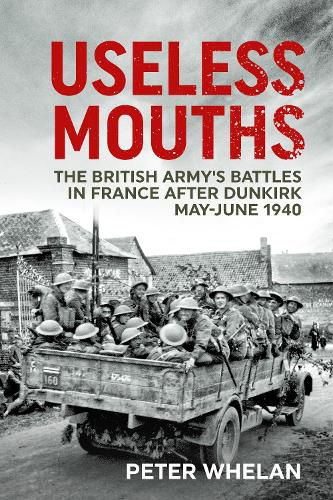Readings Newsletter
Become a Readings Member to make your shopping experience even easier.
Sign in or sign up for free!
You’re not far away from qualifying for FREE standard shipping within Australia
You’ve qualified for FREE standard shipping within Australia
The cart is loading…






The supply services of the BEF of 1939 were wholly unprepared for modern warfare and paid the price by their defeat. This book looks at the British Army’s supply service, how it developed, and how it failed, especially in the Crimea War, and how reforms in the 19th century reformed it. The focus of the book looks at the developments in the interwar years, and how it functioned during the French Campaign of May/ June 1940. The role of the LOC after the German breakthrough in France has been underestimated and under reported. Only the fortuitous mechanisation of the general transport system of the Army, not due to doctrine or foresight but a dearth of horses in the civil economy, enabled the Army to retreat faster and further than their horse bound allies
the French
and enemies
the Germans. AUTHOR: Peter Whelan is a retired Urological surgeon who did an MA in History at Leeds University in 2009. He has always had an interest in Military History and especially how Armies organise and train for War. 14 photographs, 5 maps
$9.00 standard shipping within Australia
FREE standard shipping within Australia for orders over $100.00
Express & International shipping calculated at checkout
The supply services of the BEF of 1939 were wholly unprepared for modern warfare and paid the price by their defeat. This book looks at the British Army’s supply service, how it developed, and how it failed, especially in the Crimea War, and how reforms in the 19th century reformed it. The focus of the book looks at the developments in the interwar years, and how it functioned during the French Campaign of May/ June 1940. The role of the LOC after the German breakthrough in France has been underestimated and under reported. Only the fortuitous mechanisation of the general transport system of the Army, not due to doctrine or foresight but a dearth of horses in the civil economy, enabled the Army to retreat faster and further than their horse bound allies
the French
and enemies
the Germans. AUTHOR: Peter Whelan is a retired Urological surgeon who did an MA in History at Leeds University in 2009. He has always had an interest in Military History and especially how Armies organise and train for War. 14 photographs, 5 maps